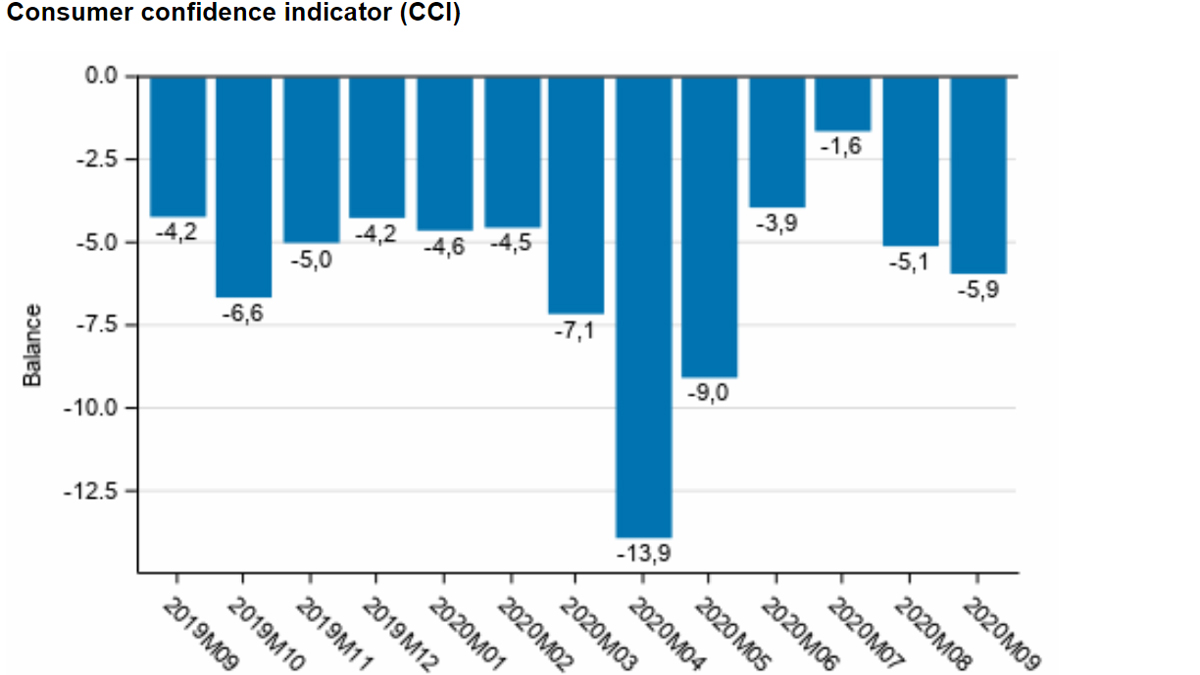Finnish consumer confidence fell again in September compared to August. People's fear of losing their jobs due to the coronavirus crisis is the main factor behind the current gloomy expectations about the future of the economy.
According to Statistics Finland's survey, the consumer confidence indicator (CCI) stood at -5.9 in September, having been -5.1 in August and -1.6 in July. Last year in September, the CCI received the value -4.2.
Of the four components of the CCI, only the views concerning consumers’ own economy at present improved in September from August. Compared to the corresponding period of last year, only expectations concerning Finland's economy improved slightly in September, while other components changed for the worse in a year.
In September, consumers' views on Finland's economic development were still gloomy. Expectations concerning one’s own economy in the near future were subdued but estimates of its present state more or less corresponded with the long-term average views. Consumers had slightly more intentions of spending money on durable goods in September than usual.

Source: Statistics Finland.
Gloomier level
Consumers’ expectations concerning the development of the general unemployment situation dropped to an even gloomier level in September.
There was also more personal threat of unemployment experienced by employed consumers, that is, wage and salary earners and self-employed persons. Consumers’ estimates of the growth rate of consumer prices fell clearly in September.
In September, consumers considered their own financial situation to be still excellent. The time was again regarded as somewhat favourable for saving but poor for buying durable goods and especially for raising a loan.
However, record many were going to take out a loan in September. Consumers also had more plans of buying a dwelling than ever. In addition, many were considering renovating their dwelling and buying a car.
By region and population
In September, consumer confidence in the economy was strongest in Greater Helsinki and weakest in Eastern Finland.
Among population groups, lower-level salaried employees were most optimistic. Unemployed persons and pensioners had the most pessimistic expectations concerning economic development.











